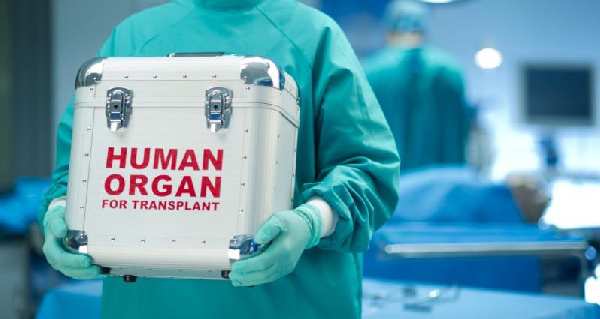The Chief Executive of Korle Bu Teaching Hospital has reiterated urgent calls for Parliament to pass comprehensive organ harvesting legislation, arguing that current gaps force Ghanaian patients to spend thousands of dollars abroad for treatments available locally.
Dr. Yakubu Seidu Adam told Parliament’s Health Committee Wednesday that the absence of legal frameworks for organ donation and transplantation creates unnecessary financial burdens, with corneal transplants costing between $3,000-$4,000 when imported from America versus a potential GH₵500 if harvested locally.
The call by the Korle Bu CEO adds to growing pressure on lawmakers to develop a legal framework to regulate organ donation and harvesting in Ghana, a move many health experts believe will improve access to life-saving procedures and lower medical costs for patients.
“With our own population, if they need a kidney transplant, they have to travel to India, America, or the UK. We have the expertise here to do the work, if only the legislative approval is given,” Dr. Adam explained during the parliamentary committee’s visit to the hospital.
The hospital CEO emphasized that Ghana possesses qualified specialists capable of performing complex organ transplants, including kidney and corneal procedures, but regulatory gaps prevent local harvesting and transplantation despite available medical expertise.
Korle Bu has successfully performed kidney transplants since July 2023, demonstrating local capacity for advanced procedures. However, without comprehensive legislation governing organ donation, harvesting, and transplantation, the hospital’s programs remain limited in scope and accessibility.
He emphasized that the passage of the organ harvesting bill would be a game-changer for healthcare delivery in Ghana, making transplants more accessible and affordable for ordinary citizens.
The financial disparities are stark. While patients currently pay thousands of dollars for overseas treatment, local procedures could reduce costs dramatically. Eye surgeons at Korle Bu perform corneal transplants but must import corneas at premium prices, passing costs to patients who cannot afford such expenses.
The renewed advocacy comes as healthcare stakeholders, including the First Sky Group, continue pressing for legislative action. The Korle Bu Teaching Hospital has called on Parliament and other agencies to speed up processes towards the passage of the law on tissue donation, harvesting and storage of various organs.
Medical tourism resulting from Ghana’s legislative gaps creates additional burdens beyond financial costs. Patients face travel expenses, accommodation costs, and separation from family support systems during critical treatment periods.
Dr. Adam’s appeal reflects broader healthcare sector frustrations with regulatory delays that prevent utilizing existing medical infrastructure and expertise. The hospital has invested in training specialists and acquiring equipment but cannot fully deploy these resources without proper legal frameworks.
Parliament’s Health Committee’s visit to Korle Bu demonstrates legislative interest in addressing healthcare challenges, but concrete action on organ harvesting legislation remains pending despite years of advocacy from medical professionals.
The proposed legislation would establish ethical standards for organ donation, create transparent allocation systems, and protect both donors and recipients through comprehensive regulatory oversight. Such frameworks exist in many countries with successful organ transplant programs.
International examples demonstrate how proper legislation enables thriving organ transplant programs that save lives while maintaining ethical standards. Ghana’s delay in enacting similar laws limits life-saving opportunities for patients with organ failure.
The economic implications extend beyond individual patient costs. Medical tourism represents foreign exchange outflows that could be retained domestically if local transplant programs operated at full capacity with proper legal support.
Healthcare experts argue that comprehensive organ harvesting legislation would position Ghana as a regional leader in advanced medical procedures, potentially attracting patients from neighboring countries and generating revenue for the healthcare system.
Success requires balancing accessibility with ethical considerations, ensuring that organ donation remains voluntary and transparent while protecting vulnerable populations from exploitation or coercion.
GNA





